Role Play: Roleplaying the ordinary
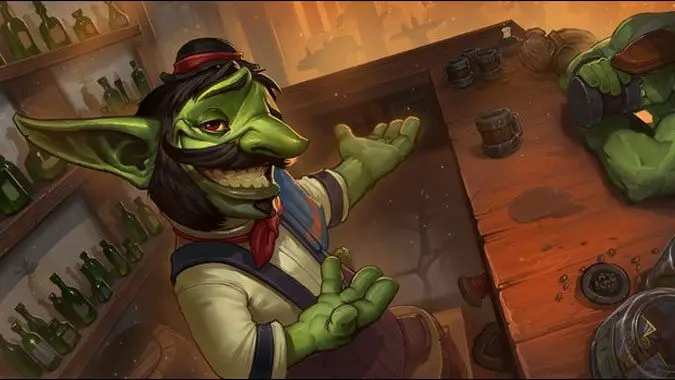
In World of Warcraft, and Legion in particular, the story is all about fantasy and heroic deeds. Every expansion, our characters prepare to deal with whatever all-powerful, cosmic villain happens to be threatening their home. They travel to far-off places and experience unusual situations that take them to other worlds, in some cases bending time and reality itself. But what if you want a character that…simply isn’t interested in any of that? Today’s email asks just that question:
In roleplay, your character can participate as much or as little with the main canon storyline as you’d like. You’re under no obligation to make your character participate. They may have some really good stories of their own that you’d rather explore. You can safely consider that main canon story a game mechanic — it’s something for everyone to experience. Your character may be aware that major things are happening, but they aren’t required to participate. They can be just as ordinary as you’d like.
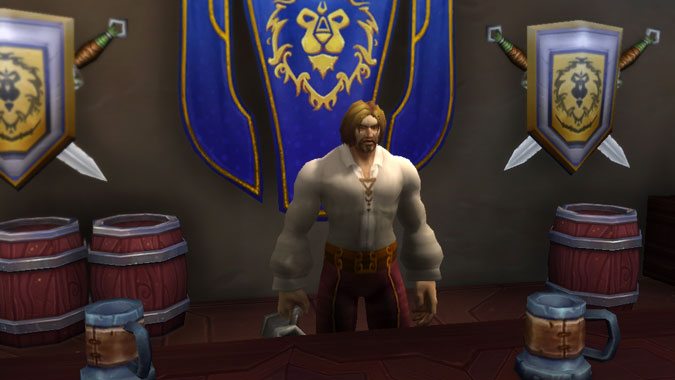
Sensible origins
For an ordinary character, you have to look at class in the same vein as you would a main expansion story. It’s a game mechanic, and it’s something you can ignore. If you’re creating an ordinary character, make sure that you notate their status in whatever roleplaying profile addon you happen to be using. Point out that they don’t actually belong to that class in your out-of-character notes. That way, fellow roleplayers will have a better idea of what they’re dealing with.
An ordinary character is likely going to have some pretty ordinary origins as well. You want to look at character creation from a slightly different angle. With heroic characters, you want to ask yourself why they’re out and about trying to save the world. With ordinary characters, you want to ask the opposite. Why did this character choose a different path?
Did they inherit a family business? Is your character a little cowardly, or do they have no real interest in saving the world? Do they enjoy their relatively simple life? Do they wish they’d done more with it? Are they interested in hearing news from far away, or more focused on their daily struggles? Did their parents strike out on adventures, or were they as ordinary as their child turned out to be?
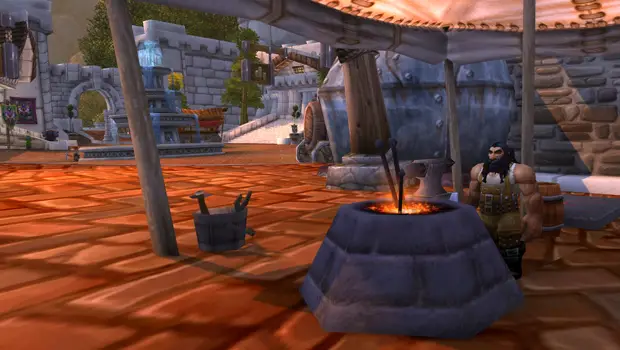
Establishing character limits
If your character isn’t a hero, then what are they capable of? What do they do on a daily basis? If you’re looking for an easy way to define that role, consider using their professions as their “class.” They aren’t a Mage; they’re just a simple tailor. They aren’t a Shaman; they’re just an herbalist, or a farmer. For more alternatives, look at NPC roles. NPC characters in WoW run the gauntlet from auctioneers and barkeeps all the way to champions that work for major heroes.
What kind of wealth does your character possess? Are they high up there in the social ladder, or poor in both money and society? Do they travel? Are they part of a roving caravan of performers, or part of a team conducting perfectly ordinary research? Are they anchored in one location? Can they afford to take a trip away, whether for holiday or business purposes?
Make sure you place largely stationary characters somewhere they can be seen. Shattrath City might seem like a nice place to hang out, but there are rarely any roleplayers in that area. In contrast, cities like Orgrimmar or Stormwind have far more traffic wandering through. If you want people to roleplay with your character, you need that character to be somewhere people can find them.
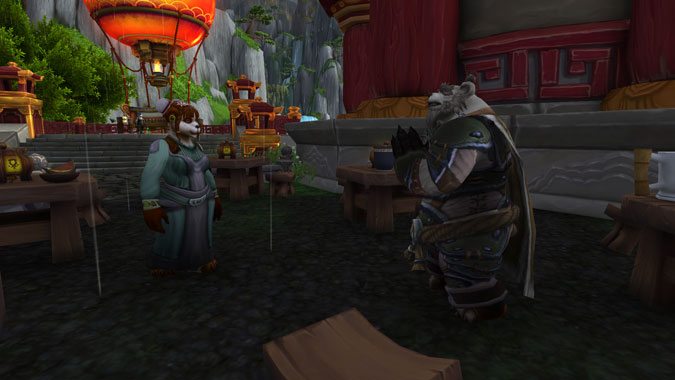
Reactions
Your character isn’t a hero, and they don’t have a litany of heroic tales at their disposal. What makes them the kind of person a hero would speak to? A lot of that lies in the reactions your character has to the world around them. Citizens of Azeroth have lived through a lot of strife and strange situations. Is your character used to the chaos? Or are world-ending scenarios and strange enemies still a jarring experience?
How do they react to actual heroes? Are they awestruck by the sight of a powerful Paladin? Do purveyors of actual magic fascinate them? Do they place Azeroth’s champions on a pedestal? Or do they treat a hero — no matter how vaunted — just like everyone else? Or are they fed up with all the heroes constantly parading through town? Do they long for a day that isn’t interrupted by supernatural circumstances?
Sure, your character may not have any tales of heroism to talk about. But that doesn’t mean they don’t have stories of their own that they can share with others. What kind of stories does your character have to tell? What do they find interesting? If a hero launches into a story about their exploits, is your character interested in hearing it? Is your character the type to offer advice or sympathy?
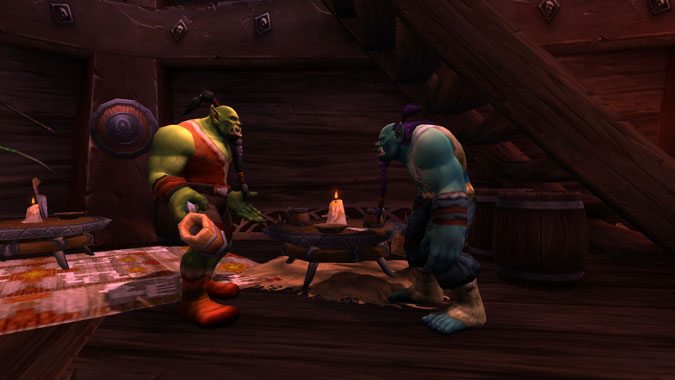
Embrace the ordinary
Characters in Warcraft are extraordinary by design — larger-than-life, incredibly powerful individuals that encounter unfathomably strange things every single day. With a hero, the story usually revolves around how they’ll defeat whatever enemy happens their way, using whatever extraordinary skills they have at their disposal.
With an ordinary character, you’re dealing with the opposite. It’s not about how your character defeats the extraordinary; it’s how they cope with it. Things that are daily occurrences for the average hero are downright bizarre for an ordinary individual. So how do you reconcile the two? What makes an ordinary character somebody worth interacting with?
It’s all about personality. Even if your character hasn’t the first clue how to cast a spell or deal with a demon, it doesn’t mean they aren’t worth speaking to. In some cases, it only makes them more entertaining. An ordinary character’s appeal isn’t in their power; it lies in how they relate to others. It’s about how they handle the world around them.
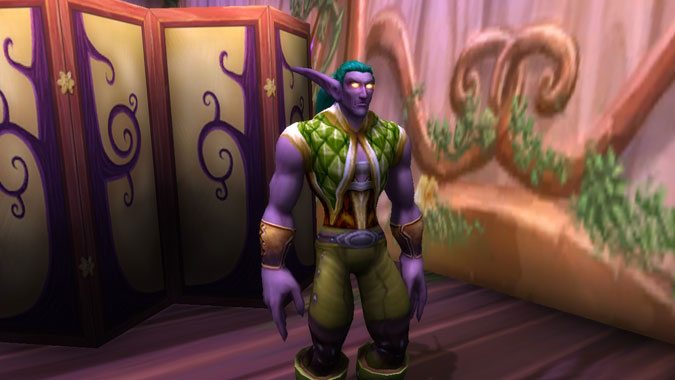
Playing with others
Your perfectly ordinary character isn’t likely to strike out and start battling enemies, but that doesn’t mean that they can’t be useful. If they stick primarily to one spot, they might be a useful source of information or gossip. They may have business contacts that could be potentially interesting to heroes looking for solutions.
Or they could simply be a sympathetic ear — someone to talk to that isn’t mad with power or greed. Just a person with a vested interest in learning about other people, or making people happy. That one “sane” voice of reason that a hero can always turn to for some pragmatic, sensible advice about any given situation.
An ordinary character is one that can easily run the gamut from comedic to heartbreaking, depending on how you play them. They might have over-the-top reactions to everything “odd” that happens their way. They might be used to living in a fantastical universe, possessing a bland, cynical, and hysterically funny yet sarcastic approach to the world around them. Or they could be just a little overwhelmed by it all. If the world is such a magical place, what place does an ordinary person really have in it?
Ordinary characters can be extraordinary in their own right, if played correctly. Remember the limits you’ve set for your character. Show a vested interest in those around you. Don’t be afraid to speak to others, let your character’s personality shine, and you should have plenty of roleplay no matter what background you choose to portray.
Please consider supporting our Patreon!
Join the Discussion
Blizzard Watch is a safe space for all readers. By leaving comments on this site you agree to follow our commenting and community guidelines.
 @Shadesogrey
@Shadesogrey



